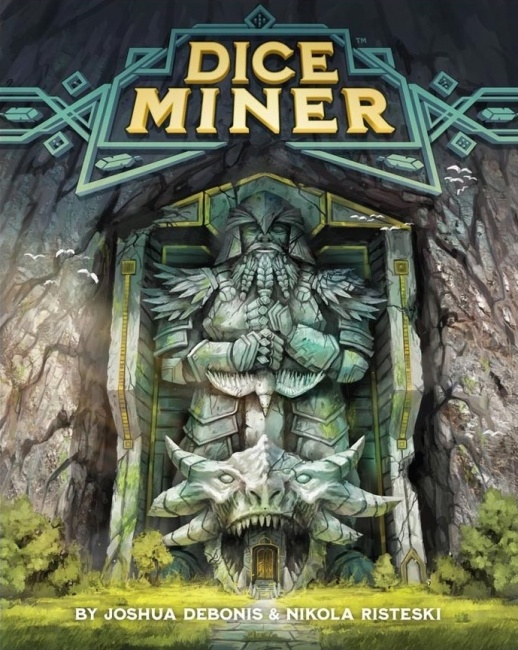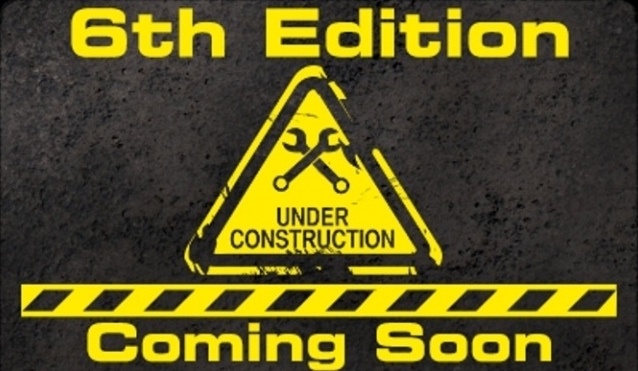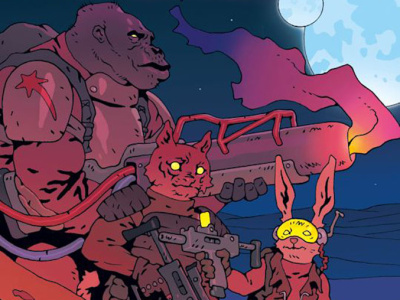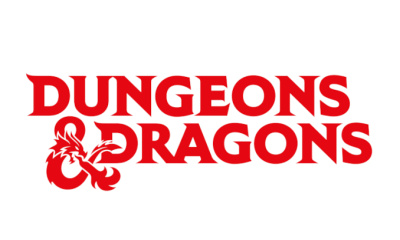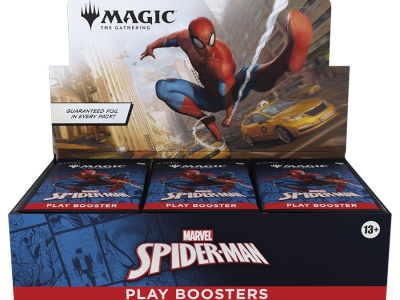Rolling for Initiative is a weekly column by Scott Thorne, PhD, owner of Castle Perilous Games & Books in Carbondale, Illinois and instructor in marketing at Southeast Missouri State University. This week, Thorne talks supply chain disruptions and the possibility of an "extinction level event" for the hobby gaming industry.
I have previously written about the impact of increased freight costs, and how channel disruptions had slowed the arrival of Atlas Games’ Dice Miner by six months and doubled shipping costs to $12,000 (see "Rolling for Initiative - Supply Chain Disruptions"). Atlas Games had also stated that, primarily due to the increase in shipping costs over the past year, the price of its Gloom card game and supplements will increase a bit over 10% later this year (see "Raises Prices on 'Gloom'").
Phil Reed, of Steve Jackson Games, referred to the logistical problems the industry is facing as a possible "extinction level event" for the game industry, especially for smaller publishers, and recently noted on the SJG Daily Illuminator that the pandemic had slowed receipt of the company’s Car Wars Sixth Edition and tripled the company’s shipping costs for the product.
Game industry veteran Mike Selinker, in a post on his Facebook, estimates that shipping costs, once approximately 10% of a game’s cost, will likely balloon in the future to 40% of its production cost.
With shipping from China, the primary source for most printed board games, as slow as it is, the only way for a company to make sure it has product for Q4 (when sales pick up in anticipation of the holiday season) is to stock up more heavily now, as the chain stores like Walmart and Target have done for years. Ever wonder why you start seeing Christmas stuff in September in most of the large chains? It’s because they ordered it months ago for arrival in late summer, in order to have it for the holiday season.
One of the big problems the industry has is a fixation on MSRP (manufacturer’s suggested retail price). For most games, the manufacturer sets an expected retail price for the item, like the $49.95 Wizards of the Coast has printed on the D&D Player’s Handbook. Assuming there is a 45% margin at retail, the store would pay the distributor or publisher $27.47 to purchase each copy of the game, and the distributor would then pay a lesser amount, say 10-15% less, to the publisher to purchase copies of the game in case lots. The problem with MSRP is that, while it establishes ease and consistency of pricing to the consumer, having a set retail price makes it much harder to adjust the pricing on products when there is significant fluctuation or a (hopefully) temporary increase in shipping costs.
Take bananas or gasoline, two commodities whose pricing employs a markup over cost. The reseller buys bananas, then determines the overhead and the profit they need to make to stay in business, and sets the price at that point. As the cost of buying the product changes, so does the price. Hence, you can drive by a convenience store in the morning and see one price for gas, and a slightly different one, higher or lower, in the afternoon and think nothing of it. TCG booster packs have moved in this direction, with WotC eliminating MSRP on Magic a couple of years ago and the current demand for Pokemon causing a defacto elimination of MSRP on its products.
I do not think we will see an "extinction level event" but I do think the current situation will further erode the concept of MSRP as the industry standard.
What do you think? Am I right or completely off base? Email castleperilousgames@gmail.com with your thoughts.
The opinions expressed in this column are solely those of the writer, and do not necessarily reflect the views of the editorial staff of ICv2.com.

Column by Scott Thorne
Posted by Scott Thorne on August 23, 2021 @ 3:32 am CT
MORE GAMES
For Retail
August 25, 2025
Osprey Games unveiled Untamed Worlds , a new RPG book.
'Volume 2' Features New Promo Card
August 25, 2025
Bandai will release Tin Pack Set Vol.2 , for One Piece CG, into retail.
MORE COLUMNS
Column by Scott Thorne
August 25, 2025
This week, columnist Scott Thorne discusses Critical Role's decision to use Dungeons & Dragons 2024 rules over the Daggerheart RPG system in their newest campaign.
Column by Jeffrey Dohm-Sanchez
August 21, 2025
ICv2 Managing Editor Jeffrey Dohm-Sanchez continues to take a look at some of the issues revolving around Universes Beyond products.




